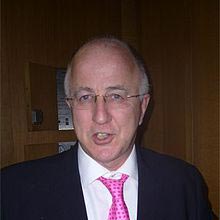Antisemitism dates back millennia and has been called “the longest hatred.” The passions that fuel it—fear, envy, jealousy, resentment, suspicion, anger, xenophobic wariness and distrust—remain familiar, but the forms this hatred takes change over time. Such hostility finds public expression through aggressive acts and words. The Institute for the Study of Contemporary Antisemitism (ISCA) at Indiana Univeristy examines both of these and the relationships between them, especially the intellectual and ideological roots of the “new” antisemitism. In doing so, we seek to elucidate the social, cultural, religious, and political forces that nurture anti-Jewish hostility.
Through an active program of courses, lectures, conferences, and high-level scholarly research, ISCA aims to clarify what is new and what has been inherited from the antisemitic lexicons of the past.
The repertoire of emotionally charged accusations against Judaism and the Jews is made up of a familiar series of destructive myths that have been perpetuated over the ages. Given their longevity and tenacity, it is unlikely that these myths can be eradicated, but by analyzing and exposing them as myths, it may be possible to help people recognize this pathology for what it is and thereby mitigate some of its harmful effects.


 The College of Arts
The College of Arts